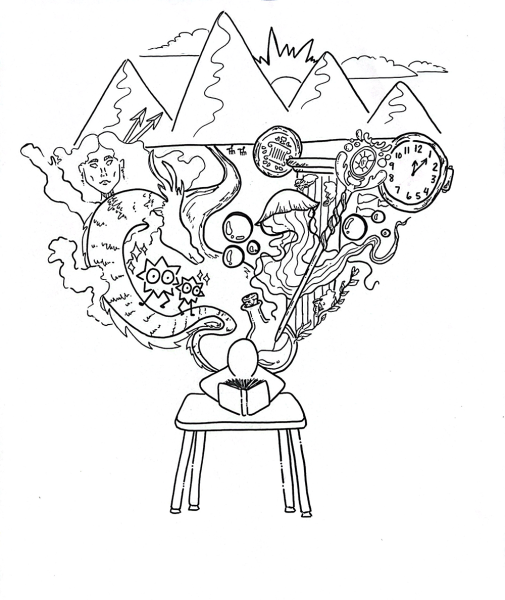Bowie Addressed His Own Death in ‘Blackstar’

Image source: davidbowie.com
Released shortly before his death, David Bowie’s Blackstar provides a capstone worthy of his long and influential career.
While this release has proven divisive due to its level of experimentation, it is worth noting that, as a whole, it does not stand out musically. In fact, Bowie fans may find this album reminiscent to his experimental late 70s work. Instead, what truly makes the album transcendent is the context of its release, as the album’s surreal statement about death only became apparent after the singer’s passing was announced.
Every song on the album is unique. The intro track, Blackstar, is an experimental work that includes of a frantic, unusual tempo and eerie shamanic chants before delving into ethereal and creepy jazz.
Lazarus is driven by a drum beat that strongly recalls an 80s post punk sound, along with droning saxophones and mangled guitars.
Girl Loves Me, a subtle descent into madness, is an experimental hip hop piece punctuated with lyrics in the slang from A Clockwork Orange. The vocals are subdued and sparse while the instrumentation come close to, but never reaches a climax.
The despair of Dollar Days is deeper than at any other point in the album, as it presents a haunting sound that broods on Bowie’s reluctance to accept his death. This is immediately followed by I Can’t Give Everything Away, which shares many of the haunting qualities of Dollar Days and depicts a reluctant acceptance of death.
While Blackstar is commendable due to its conceptual take on Bowie’s death, its intense focus on this subject also leads to flaws. For example, while they are by no means poor songs, ‘Tis a Pity She Was a ***** and Sue (In a Season of Crime) have unrelated subject matter and come across as derivative. Furthermore, those who don’t have a real interest in the driving concept may find themselves unable to enjoy this album.
On the other hand, Blackstar doesn’t leave the listener much to complain about musically. My largest complaint has to do with the album’s production, which often feels overdone to a point that the music starts to have a cold, digital feel that can be difficult to listen to. However, it has been noted that Bowie took heavy inspiration from artists known for their cold and digital production, such as Boards of Canada and Death Grips, and thus it is likely that this was done intentionally.
While it’s not Bowie’s greatest work, Blackstar is very likely to be recognized in the future simply because it was created on his deathbed and directly addresses his own mortality. As a result of this context, the album’s emotional impact is striking, elevating the impact of the project as a whole.









![“My parents have always said that education is important. My parents are Chinese immigrants, I'm Chinese American, [and that's a] value that has always been ingrained in our community,” said Senior Lyndia Zheng, pictured with Tony Zheng](https://bcomber.org/wp-content/uploads/2025/10/DSC_4244-600x400.jpg)


